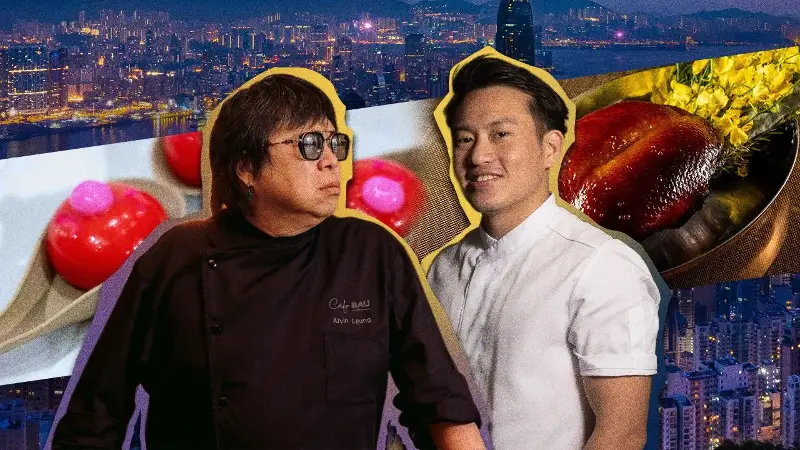
In Hong Kong’s lively food scene, you’ll find everything from street food to fine dining.
Look around the bustling streets of any major district, and it’s the hawker stalls that will immediately fill your periphery. Wander a little further, and you’ll find higher-end establishments tucked into tall buildings, all of which offer a charm of their own.
It doesn’t really come as a surprise when people say they booked a trip to Hong Kong just to eat, because everyone has a dish they’d kill to taste right on its soil — whether it’s egg tarts or char siu.
The bottom line is that the Fragrant Harbour isn’t referred to as a culinary capital for no reason.
Meet Alvin Leung and Aven Lau, the chefs behind two of Hong Kong’s Michelin-starred restaurants: Bo Innovation and Épure. Despite their contrasting philosophies in the kitchen, the pair finds similarities in bringing Hong Kong’s dining scene to new heights.
Alvin Leung sees opportunities for elevation in simplicity
At the core of Alvin Leung’s world is being able to stand out from the get-go. That’s how it’s always been for the acclaimed 64-year-old chef, who’s at the helm of Wan Chai’s Cafe Bau and the two-Michelin-starred Bo Innovation in the Central district, among others.
“No. I’m still an attention seeker,” the MasterChef Canada judge immediately answered when asked if his own views on food have changed over the years.
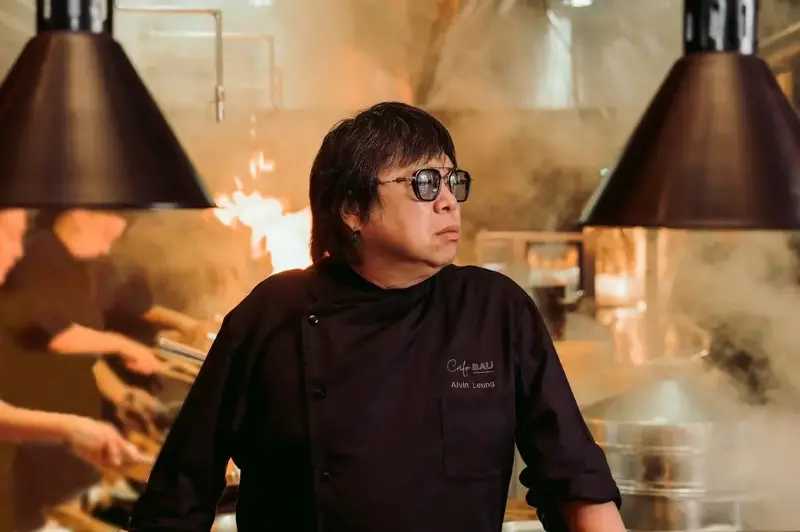
“I like to be unique. I like to do things that nobody has done, go to places nobody has gone. So, even in my TV shows, I like to do something that is probably less mainstream. That’s always been my character, just to be different. I don’t think that has changed,” he continued.
It wasn’t difficult to understand what Leung was talking about. During the 2025 Hong Kong Wine & Dine Festival, under Bo Innovation, he lined up a menu of reimagined versions of Hong Kong’s most iconic dishes, which really drove his point home and became a rather glaring indication of his roots as an engineer by profession.
Just take the Molecular X-treme Xiao Long Bao for example. Taking on the colors of bright red and pink, it’s perfectly round and smooth, free of the creases the soup dumpling usually has. But it still gives you the classic xiao long bao experience anyone would look for: when you take a bite off the edge of the wrapper, a small wave of hot broth washes over your mouth before you get to the bits of ground pork.
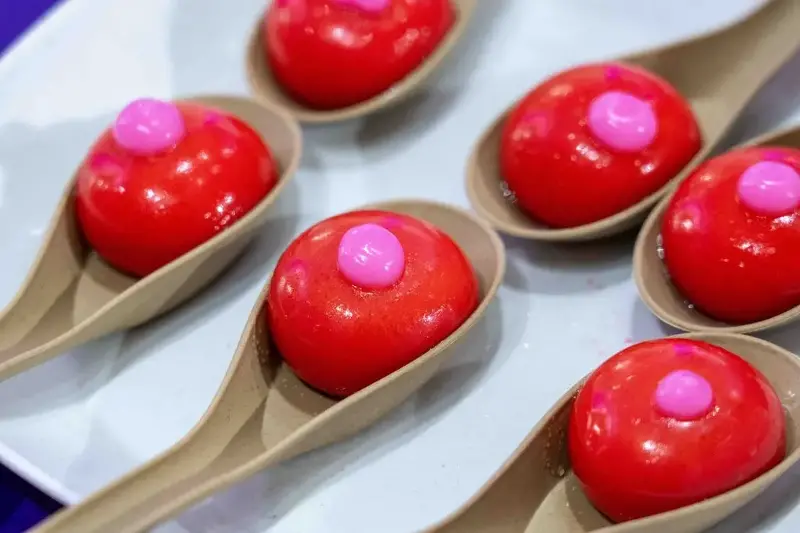
There’s also the Lao Po Bing (wife cake), which is typically round, flat, and stuffed with wintermelon filling. Leung’s version, however, merges the modern with the traditional. He deconstructs the cake and adds two new layers to the mix: a scoop of ice cream and a thin meringue disc. The bottom layers, which serve as the entire dish’s foundation, stay true to the chewy filling and usual flaky texture of the famed dessert.
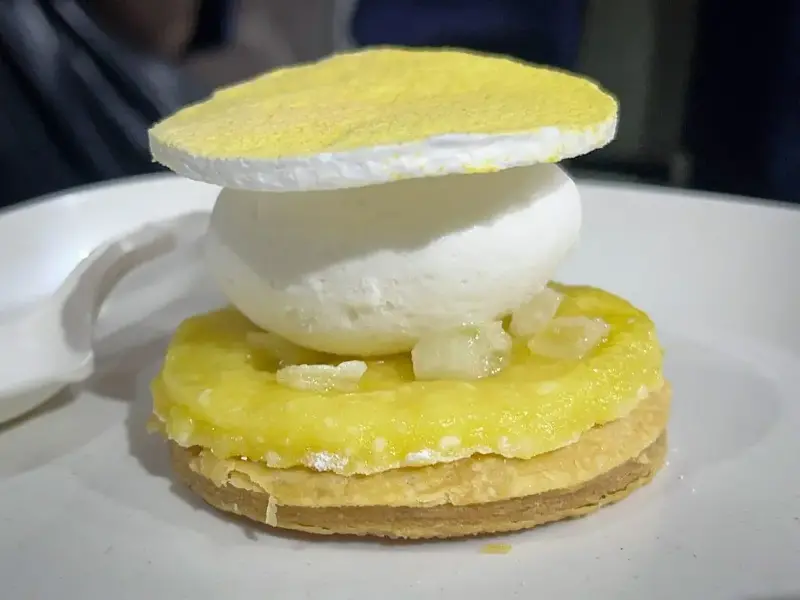
These dishes still taste familiar at the end of the day, just presented in ways you wouldn’t think of. Perhaps it’s the London-born chef’s way of keeping up with the dynamic culinary industry while still paying homage to the classics people love.
Leung believes the latter is exactly why people should come to Hong Kong in the first place.
“No,” Leung replied when asked if there’s any aspect of the local cuisine he feels needs to be highlighted more. “I think we have such a variety in Hong Kong. We cover every aspect around the world. I really think that people, when they come to Hong Kong, should attempt to go for something unique to [it].”
Aven Lau: In between cultures
For Aven Lau, meanwhile, intersections seem to be a major part of his body of work in more ways than one.
The Singaporean chef runs the show at the one-Michelin-starred Épure, where he cooks contemporary French food at Hong Kong’s Victoria Harbourfront. All these different cultures and cuisines have essentially become a part of who he is as a chef, with his Singaporean identity laying the groundwork for it all and Hong Kong serving as the backdrop for his culinary growth.
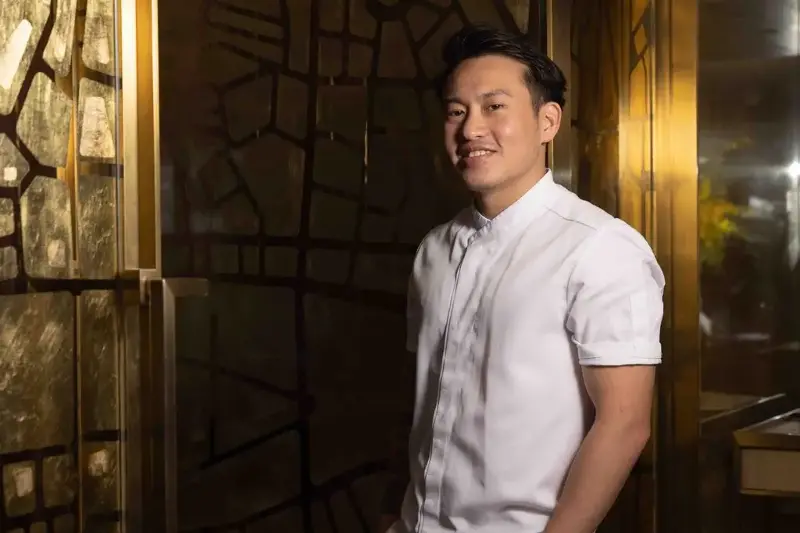
Traces of his adolescence have even found their way back to a later point in his timeline as a professional chef. Years ago, Lau thought of recreating a quail dish he tried when he was dining out with his family during his youth, showing that it’s the mundane, fleeting experiences we often remember most.
“I didn’t grow up in a family where they were very focused on food. Like, we were just eating at street-side stalls. There was once, my parents decided to celebrate, and they brought me to this Middle Eastern restaurant. And they ordered this smoked chicken. At that age, that was the best chicken I had because it was the first time I tasted something that smoky. So, that made me want to recreate a poultry dish,” he told Rappler.

Lau stressed, though, that every year, he cooks differently. What he created three years ago likely won’t be the same thing he’ll cook three more years down the line. He attested that he isn’t one to follow trends but is instead always looking to evolve.
It’s a paradox, really — what will never change with Lau is his chase for constant transformation.
“I think that’s the most important, it’s that constant evolution. If you’re not evolving, you’re stuck in the past, right? I think the whole point about [being] a chef is about finding your own identity,” he said.
And it’s reflected in what he serves at Épure.
One of these is the aged rice duck “a l’orange” with aged tangerine peel and timut pepper, which has become a staple at the establishment. These ducks are sourced from China’s Guangdong province and baked in the oven until the skin becomes crispy. The timut pepper sauce is then poured over the slices of duck to even it all out.
But what really ties it all together are the oranges being swapped out for tangerines. This, Lau said, gives the French dish a distinct Asian flair.
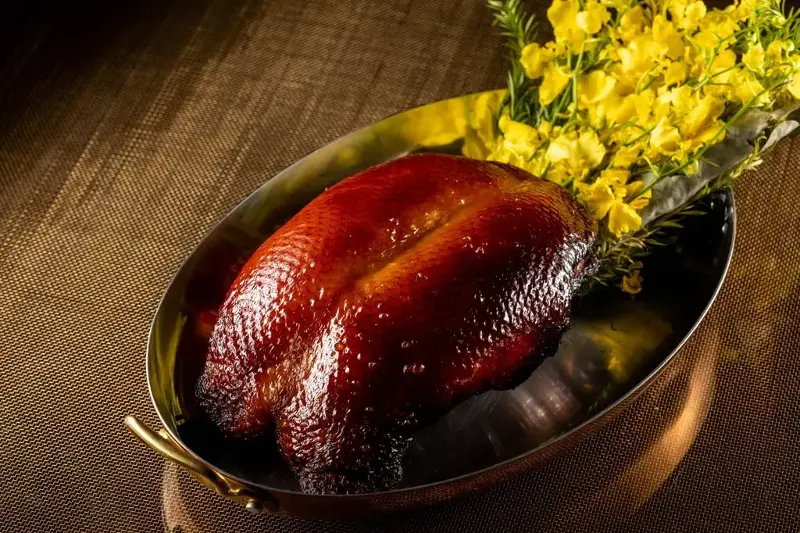
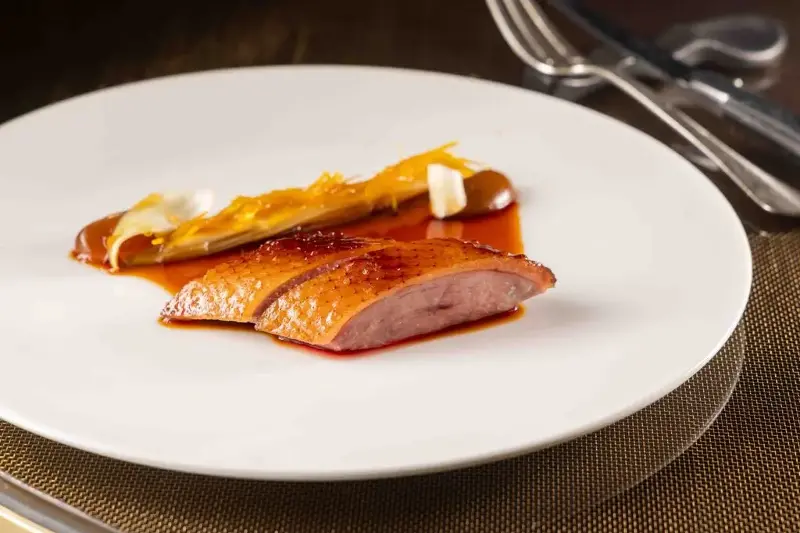
The chocolate soufflé tart, meanwhile, is light, fluffy, and has the very level of good bitterness you would look for in any cacao-based dessert after having a series of savory mains.
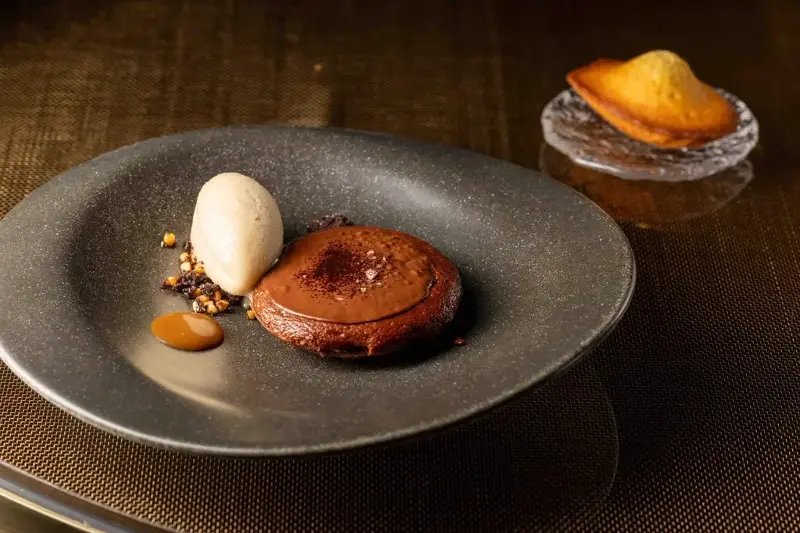
While Épure is a French restaurant on paper, Lau still makes it a point to incorporate semblances of his own lived experiences into whatever he cooks in the kitchen, allowing him to create dishes he can truly call his own.
It all circles back to what he deems important as a chef: finding your own identity.
Both these chefs are helping push Hong Kong’s dining scene forward in their own ways — Leung doing so as he gets a thrill out of refashioning classics, and Lau following suit as he injects elements from his own heritage into French cuisine. It’s no wonder, then, how Hong Kong earned its reputation as a renowned culinary destination. – Rappler.com
